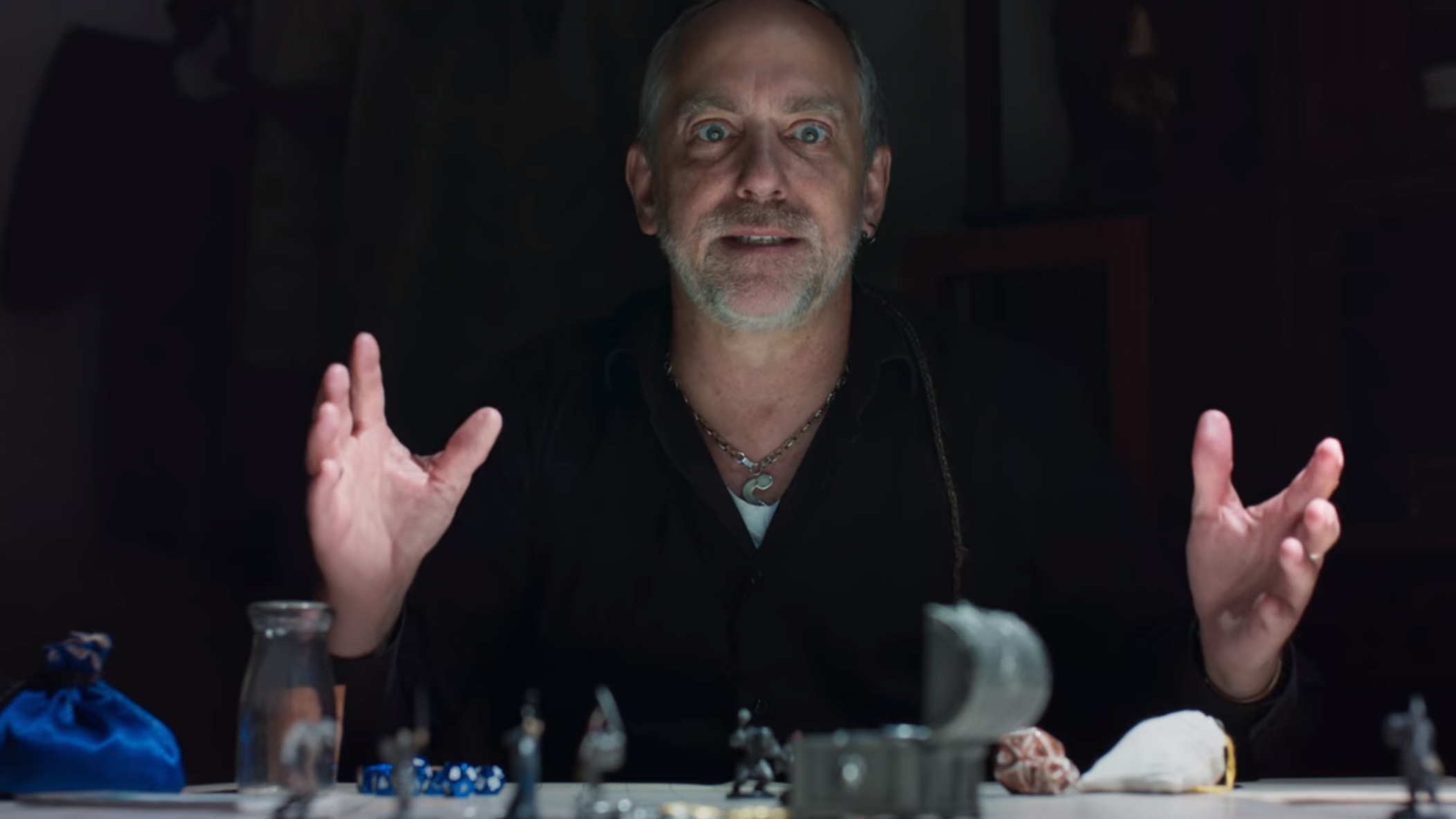Netflix's videogame history series avoids some common mainstream game coverage blunders
(But you'd still be better off watching YouTube videos.)

With a generic name like "High Score," I expected Netflix's documentary series about videogame history to be the sort of fluff that repeatedly points out how much games matter. Did you know that videogames make more money than Hollywood? That millions of people watch teenagers compete in League of Legends tournaments? That kind of thing.
Well, who am I, at PC Gamer, to complain about generic titles? I was surprised. I watched the two episodes of High Score that have to do with PC gaming—the third episode, which is about RPGs, and the last episode, which is partially about id Software—and they weren't like that. They weren't great, but they at least defied some of the traditions of mainstream videogame coverage.
The PC isn't entirely left out, for instance, which is what I expected given mainstream games coverage's record of ignoring computers to focus on consoles. Sierra On-Line co-founder Roberta Williams and id Software co-founder John Romero are among the interviewees in the episodes I watched, and they are two people you definitely need to call if you're talking about '80s and '90s games.
However, the section about Sierra On-Line spends most of its time mythologizing Roberta and Ken Williams, telling an origin story that neatly aligns Roberta's love for adventure with Ken's technical know-how, and then drops the story to get to the next one before it can really get into what building games in the '80s was like. I enjoyed Roberta reenacting how she designed early adventure games on a big sheet of paper, and wished for more of that.
Romero appears in the series finale, which discusses the rise of 3D games, Wolfenstein, Doom, and networked gaming. No one with a basic knowledge of '90s gaming history will discover much there, either, but Romero's cheerfulness is contagious. Of course him showing off old ideas for Doom demons is entertaining.
As a whole, High Score is a broad overview of early gaming that may appeal to teenagers who weren't around for the battle between Mario and Sonic, dial-up modems, or the political and cultural fight over Mortal Kombat and Night Trap. That said, it's not exactly in touch with the youths, either. As Ultima creator Richard Garriott helps explain the concept of Dungeons & Dragons, we learn from narrator Charles Martinet (the voice of Mario) that the tabletop game uses "crazy-looking dice," as if kids aren't aware of what a d20 looks like after Netflix's own Stranger Things or popular D&D streaming series like Critical Role. The kids love D&D!
You'd think we were having witch trials over vector art while I was growing up.
It's not all broad, Nintendo vs Sega stuff, though. In episode three I learned about an RPG called Gay Blade, which creator Ryan Best released in 1992 but lost every copy of after a shipping issue stranded some of his boxes in Hawaii.
Keep up to date with the most important stories and the best deals, as picked by the PC Gamer team.
It feels like the filmmakers had been hoping for a more scandalous story, though, because they animated a joke segment in which bonafide monster Pat Buchanan steals the game, realizes he's gay, and then moves to Paris with his new partner. "Actually, that didn't happen at all," the narrator then says. The documentary clearly means to be on Best's side, but fumbles it by recycling the pernicious "all people who hate gay people are secretly gay" narrative for the sake of filler.
At the end of the episode, a series of fake game screens allude to the fact that Gay Blade was recently found, but doesn't say so directly, doesn't say who found it, and doesn't mention that it was, like a lot of unavailable games, put on Internet Archive. The omissions would seem strange if the documentary weren't so generally disorganized.
Still, I learned something new. I also enjoyed the humor inherent in High Score's mythologizing. In the first episode, the documentary calls early computers "prehistoric," and stares in awe at the creators of the videogame industry as architects of a new world. Videogames seemed like "magic" back then, we're told. You'd think we were having witch trials over vector art while I was growing up.
In the finale, Martinet declares that "it can be hard to remember the humble beginnings of what would become this billion dollar entertainment juggernaut."
Is it really that hard to remember thirty years ago? Most of the games in the series aren't that old, but I suppose to the target audience of teenagers, 1990 is another world. Now I know how my parents must've felt when my generation started putting typewriters in steampunk, a genre otherwise about steam engines.
I am glad that mainstream media can seemingly just talk about games now without frequently pausing to note that they're actually quite popular and important.
High Score makes for a so-so introduction to gaming history for people who are new to the whole thing, and maybe it'll convince some of them to hit up GOG's selection of classics or learn more about them—if they haven't already, because tons of history is already available to them online and has been for years. There are loads of YouTubers whose gaming history videos are more interesting than this, even if they haven't interviewed Roberta Williams and John Romero on camera. Check out Lazy Game Reviews for classic PC stuff, for example. We also post videos about gaming history. (I promise I did not make fun of Netflix's show just to promote that fact.)
Even if I didn't love the show, I am glad that mainstream media can seemingly talk about games now without frequently pausing to note that they're actually quite popular and important. Games coverage, especially on big stages, has had a tendency to spend a lot of time justifying itself, but I didn't notice much of that in High Score.
Granted, The New York Times did recently publish an article that explains both that games are quite popular these days and that it's outdated to view them as "a mind-deadening waste of time" or "full-immersion training in antisocial behavior" (thanks?), and Twitter did just spend a whole day upset that Joe Rogan said games are a waste of time, so maybe I'm getting ahead of things.

Tyler grew up in Silicon Valley during the '80s and '90s, playing games like Zork and Arkanoid on early PCs. He was later captivated by Myst, SimCity, Civilization, Command & Conquer, all the shooters they call "boomer shooters" now, and PS1 classic Bushido Blade (that's right: he had Bleem!). Tyler joined PC Gamer in 2011, and today he's focused on the site's news coverage. His hobbies include amateur boxing and adding to his 1,200-plus hours in Rocket League.

